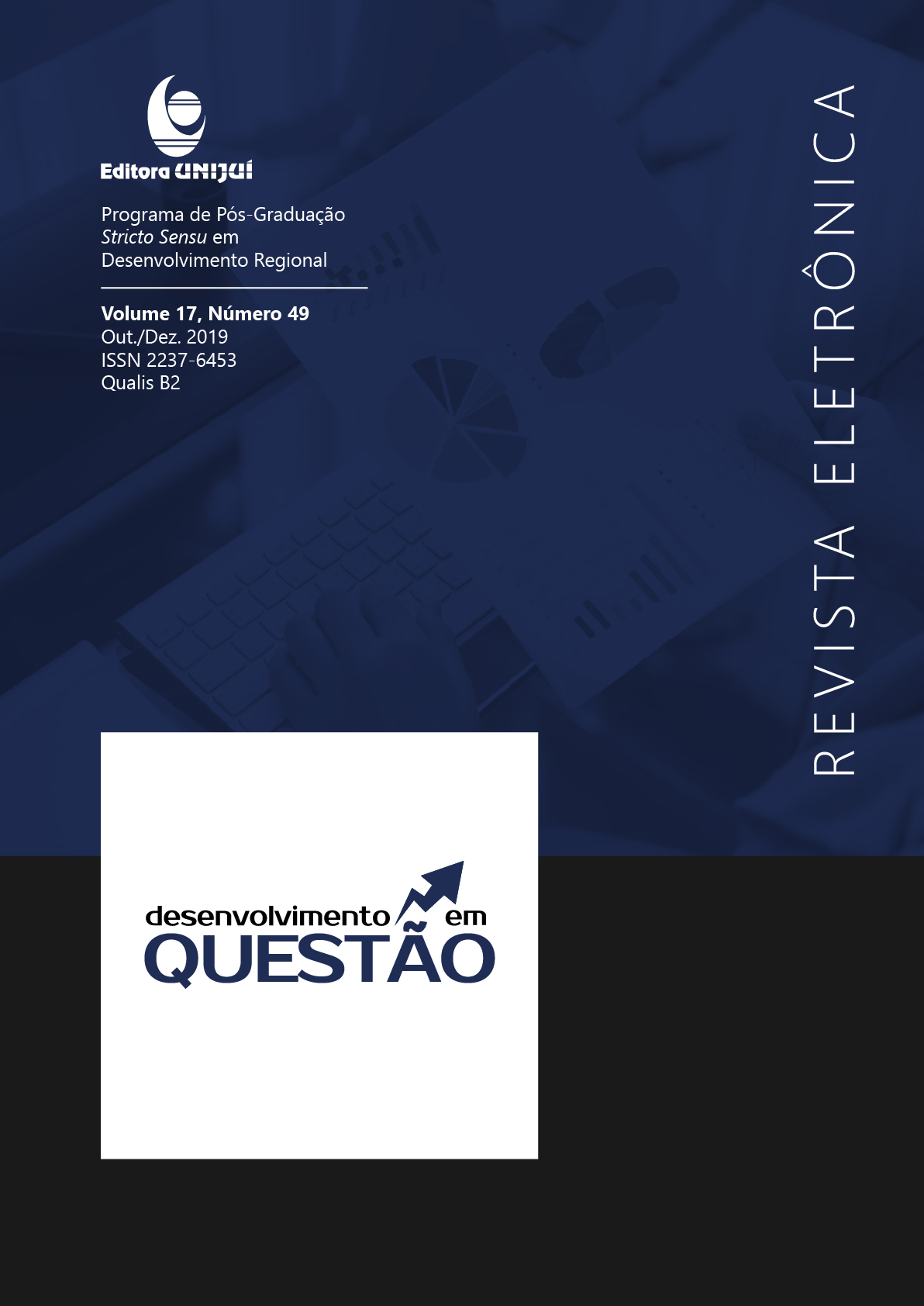Importância Socioeconômica da Integração Avícola para os Produtores da Mesorregião Oeste do Paraná
DOI:
https://doi.org/10.21527/2237-6453.2019.49.329-347Palavras-chave:
Agronegócio. Avicultura. Sistema agroindustrial.Resumo
A avicultura é um setor em expansão e representativo para a economia Brasileira. No Estado do Paraná (maior produtor e exportador de carne de frango do país) o sistema agroindustrial (SAG) assume maior destaque representando 11% do valor bruto da produção do agronegócio. Este SAG é também o maior gerador de emprego e renda do agronegócio paranaense, contribuindo para o aumento significativo da economia estadual. Ademais, dos setores do agronegócio, a avicultura é o que tem maior potencial de geração de empregos haja vista que demanda muita mão de obra para produção e industrialização. Nesse cenário, como objetivo central, esse estudo buscou investigar os impactos socioeconômicos da atividade avícola para produtores de frango de corte da Mesorregião Oeste Paranaense (MROP), bem como, identificar o perfil e características desses sujeitos. Para tanto, este estudo de cunho qualitativo, reflete os resultados de um questionário aplicado in loco a 133 avicultores da MROP. Os principais resultados apontam que a atividade é regida contratualmente entre produtores e agroindústrias pelo denominado sistema de integração avícola e composta pelo predomínio de produtores com pequenas propriedades. Estes, demonstram-se, de modo geral, satisfeitos, tanto em relação à lucratividade quanto à garantia do retorno sobre o investimento realizado em suas propriedades. De modo geral, os resultados apontam para um cenário favorável à avicultura na região estudada, avaliada de forma positiva pelos agentes envolvidos.
Downloads
Publicado
Como Citar
Edição
Seção
Licença
Ao publicar na Revista Desenvolvimento em Questão, os autores concordam com os seguintes termos:
Os trabalhos seguem a licença Creative Commons Atribuição 4.0 Internacional (CC BY 4.0), que permite:
Compartilhar — copiar e redistribuir o material em qualquer meio ou formato;
Adaptar — remixar, transformar e criar a partir do material para qualquer fim, inclusive comercial.
Essas permissões são irrevogáveis, desde que respeitados os seguintes termos:
Atribuição — Atribuição — os autores devem ser devidamente creditados, com link para a licença e indicação de eventuais alterações realizadas.
Sem restrições adicionais — não podem ser aplicadas condições legais ou tecnológicas que restrinjam o uso permitido pela licença.
Avisos:
A licença não se aplica a elementos em domínio público ou cobertos por exceções legais.
A licença não garante todos os direitos necessários para usos específicos (ex.: direitos de imagem, privacidade ou morais).
A revista não se responsabiliza pelas opiniões expressas nos artigos, que são de exclusiva responsabilidade dos autores. O Editor, com o apoio do Comitê Editorial, reserva-se o direito de sugerir ou solicitar modificações quando necessário.
Somente serão aceitos artigos científicos originais, com resultados de pesquisas de interesse que não tenham sido publicados nem submetidos simultaneamente a outro periódico com o mesmo objetivo.
A menção a marcas comerciais ou produtos específicos destina-se apenas à identificação, sem qualquer vínculo promocional por parte dos autores ou da revista.
Contrato de Licença (para artigos publicados a partir de 2025): Os autores mantêm os direitos autorais sobre seu artigo, e concedem a Revista Desenvolvimento em Questão o direito de primeira publicação.











